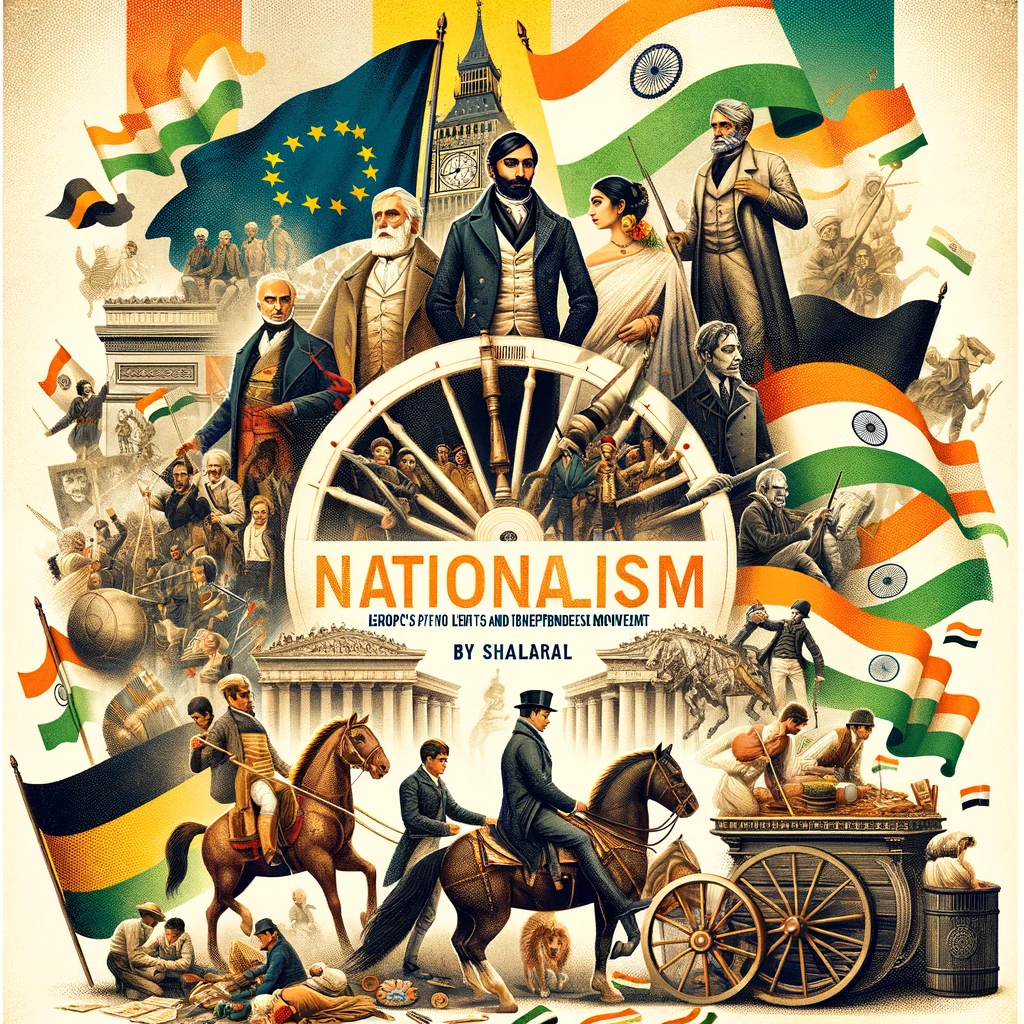
“Exploring the Rise of Nationalism: Europe’s Pivotal Events and India’s Independence Movement”

Introduction to Unit 1 – Events and Processes
Unit 1 delves into the transformative period of the 18th and 19th centuries, where the European landscape was reshaped by the forces of nationalism. It examines the pivotal events and ideologies that led to the emergence of nation-states, revolutionizing the political and social structures of Europe. This unit explores the impact of the French Revolution, the Revolutions of 1830-1848, and the unification of Italy and Germany, alongside the interplay between nationalism and imperialism.
The Rise of Nationalism in Europe
What were the foundational events that led to the rise of nationalism in Europe?
The Enlightenment, advocating for the rational governance of society, the influence of the American Revolution, and the upheavals of the French Revolution collectively contributed to the burgeoning sentiment of nationalism. These events collectively emphasized the concept of self-governance and questioned the long-held belief in the divine right of kings, proposing instead that sovereignty should lie with the people.
How did the French Revolution contribute to the idea of the modern nation-state?
The French Revolution was a fundamental catalyst in conceptualizing the modern nation-state. It championed the Declaration of the Rights of Man and of the Citizen, proclaiming equal rights for all and introducing the concept of citizens’ sovereignty over their nation, thus laying the groundwork for modern democratic systems.
Can you trace the timeline and the impact of the Age of Revolutions between 1830-1848?
The Age of Revolutions was a period marked by a chain of insurgencies across Europe, which were primarily driven by the principles of national self-determination and democracy. The 1830 July Revolution in France and the extensive revolts of 1848 were pivotal in demanding national autonomy and constitutional governance from autocratic monarchies.
Discuss the processes involved in the unification of Germany and Italy.
Germany’s unification was orchestrated by Otto von Bismarck’s strategy of ‘blood and iron’, utilizing warfare and realpolitik to consolidate various independent states. Italy’s unification was achieved through the astute diplomatic tactics and military campaigns led by figures such as Cavour and Garibaldi, who were pivotal in uniting the fragmented Italian states into one nation.
In what ways did art and imagery contribute to the shaping of nationalism?
Art and imagery were instrumental in fostering a sense of nationalism by creating a shared cultural narrative. They portrayed national virtues, glorified pivotal historical moments, and depicted figures of national importance, which all served to reinforce a unified national identity amongst the public.
How did nationalism and imperialism interact and conflict in European politics?
Nationalism and imperialism were intertwined in European politics; the fervor of nationalism often drove the ambitions for imperial expansion, causing international rivalries and conflicts. Conversely, in the colonies, nationalist movements gained momentum as a reaction against imperialist domination, leading to a wave of independence struggles across the globe.
Nationalism in India
What were the effects of the First World War, Khilafat, and Non-Cooperation on Indian nationalism?
The First World War imposed severe economic strain on India, which, when coupled with the sentiments stirred by the Khilafat issue and the Non-Cooperation movement, spurred a widespread nationalist movement. These factors united diverse sections of Indian society in a collective endeavor to resist British rule.
The Age of Industrialization
What was the impact of the Industrial Revolution on society and the economy?
The Industrial Revolution had far-reaching effects on society and the economy, transforming agrarian societies into industrialized urban centers. It fostered the development of a new working class and triggered profound technological and economic changes, resulting in increased production, trade, and the advent of new industrial economies.
Important Dates and Years for Exam Preparation
– 1789: Start of the French Revolution.
– 1830-1848: Age of Revolutions in Europe.
– 1871: Completion of German unification.
– 1861: Proclamation of the Kingdom of Italy.